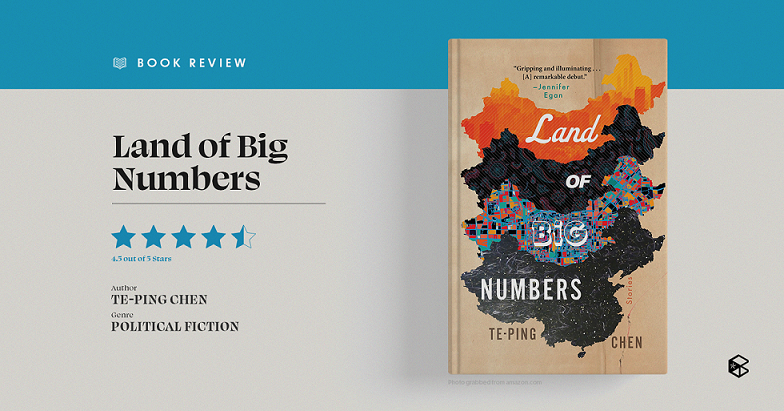It is no easy feat to shrink the largest country in Asia into 10 short stories. Still, American journalist-turned-author Te-Ping Chen proves that the task is not only possible but also socially significant.
Based in Philadelphia, she is currently a writer for the Wall Street Journal and previously served as the paper’s correspondent in China. Her debut novel, “Land of Big Numbers,” is a painfully relevant addition to Asian-American literature, exploring themes and social issues ranging from anti-capitalist sentiments to the Great Firewall of China.
Published in 2021, this collection of 10 stand-alone narratives, mostly set in China with a hint of the US here and there, may seem to the reader as one grand story by the time they finish the book. One could even ask if the twin sister from the story, Lulu, might have bumped into the young lady from Shanghai Murmur. With clarity and smart pacing, Chen’s voice in the novel makes it easy to place yourself in the shoes of characters whose situations are far from your own, in cities you may never have visited. This is all while maintaining a level of ambiguity in her stories that is enough for readers to surmise, “Is this scene about Tiananmen Square?”
“If you want to understand your own country, you’ve already stepped on the path to criminality.”
“Land of Big Numbers” as a novel is a discussion starter, more so a catalyst for essential debates on the complexities and controversies of the land of the Red Dragon and how it shapes its behavior towards other countries. This novel's beauty lies in Chen’s subtle yet raw storytelling of China’s duality as a country with breathtaking landscapes and interesting citizens and as a state that wears anti-liberal and toxic nationalist ideas on its sleeve.
From the eyes of a young adult making their way into the city to a leftover pensioner in the countryside, we see China in its different lights with detailed backdrops. In Lulu, censorship, propaganda, and the consequences of dissent plague the story’s namesake as she breaks through the Great Firewall. We face a member of the Chinese Communist Party in Flying Machine and watch how the elderly Cao Cao tries to invent his way out of poverty and into the party. Most of the stories are interconnected through similar themes and issues. This is the case with On the Street Where You Live and Gubeikou Spirit, where we ask ourselves: What does it mean to be free? What is the cost of attaining such freedom in a state-controlled country? These ideas of freedom also arise when characters share their ideas of the US, as in one instance, a character thinks, “America is like that, I must say, free and easy until you know better.”
“The government was not very good at a lot of things, but it was very, very good at ensuring profits.”
At first glance, the book title gives a clear image of China’s population. But in the story of Land of Big Numbers itself, we find that there is more to just the country’s 1.4 billion—and rising—inhabitants. Following the US, China is currently the world’s second-largest economy. With this comes opportunities for younger generations to enter the state’s business industry, a world full of big numbers. However, we find that, in this context, a split in the big numbers lies between China’s ignorant and profit-hungry individuals and a generation of people who fought against a government that prioritized the economy over individual freedoms.
“It’s called dingzihu [...] The government wants to take their land but they won’t move.”
A significant aspect of Chen’s work is how she incorporates her experiences in journalism into her fictional work. In a 2019 interview with The New Yorker, Chen shared that “journalism and fiction are both ways of being differently attentive to what’s around you. [...] To me, they work in rhythm with each other.”
While presenting very real issues in modern China, her characters find ways to escape these realities, often going to great lengths to achieve the life they want but cannot have. This balance of fact and fiction cultivates a deeper understanding in the reader of China’s government and economy and, most importantly, of its citizens.
Although the Filipino reader may have preconceptions about the “Land of Big Numbers,” it pays to dig into the psyche of a neighbor who will not bend to countries defending their sovereign rights.
You can find this book at Fully Booked online via their website and on Shopee.


